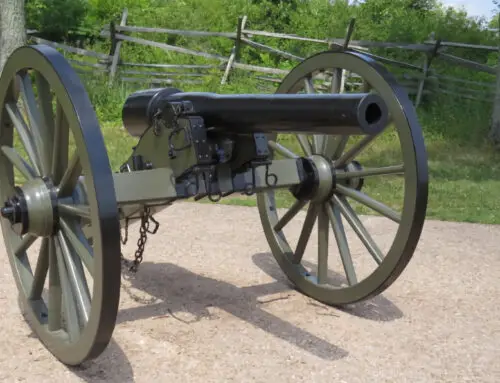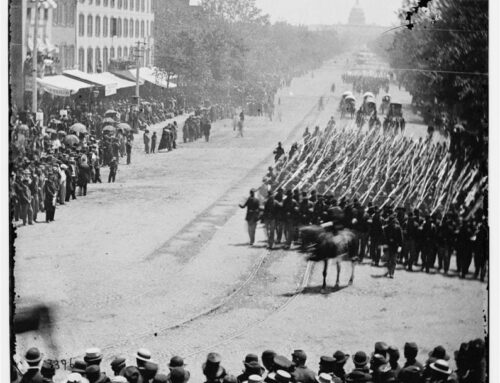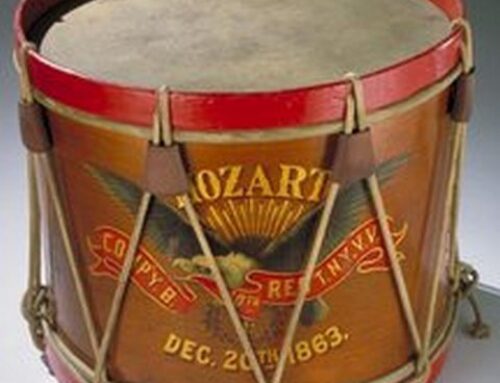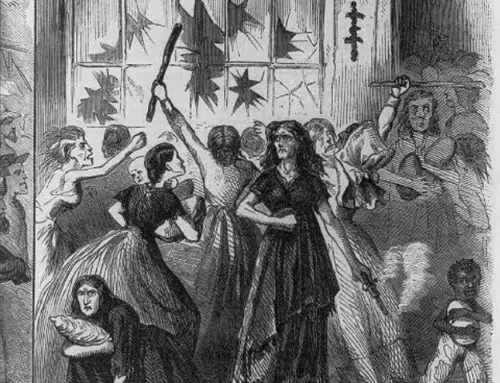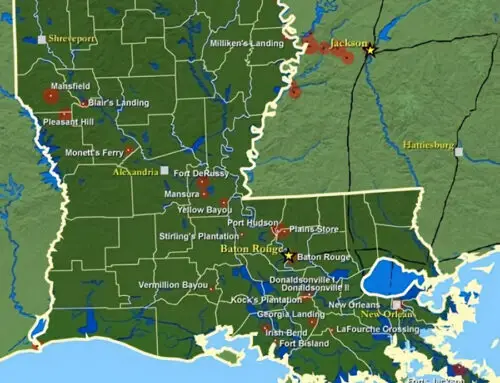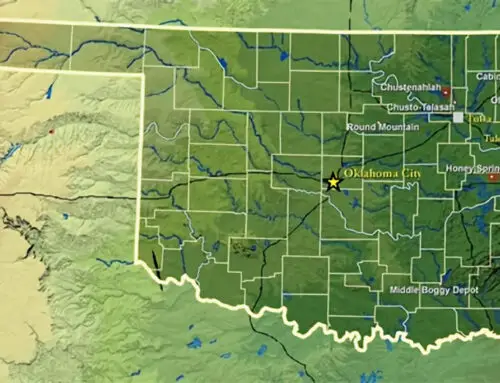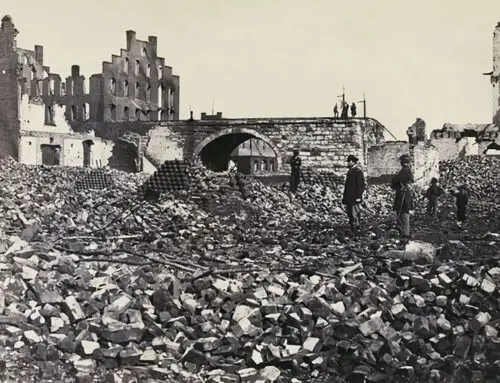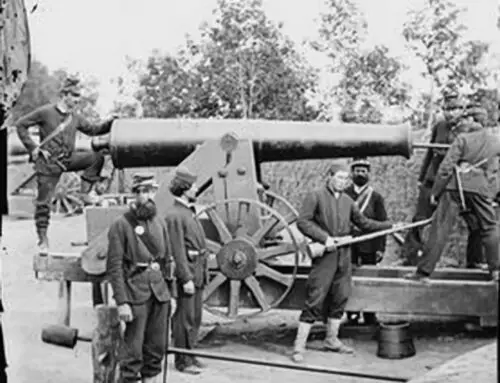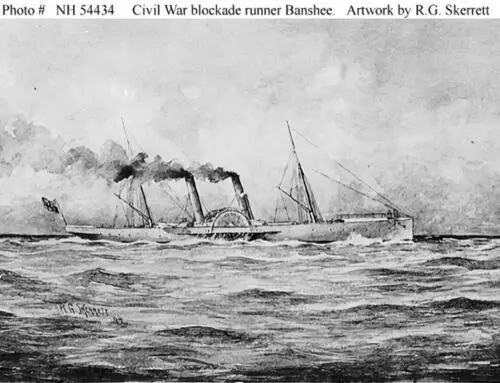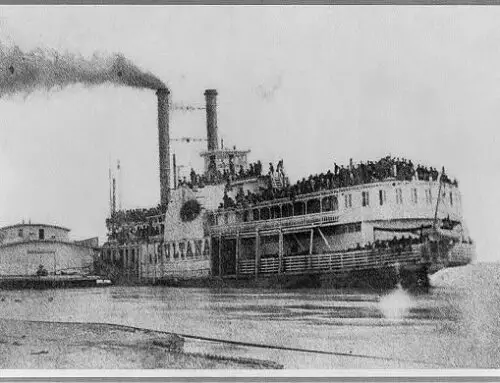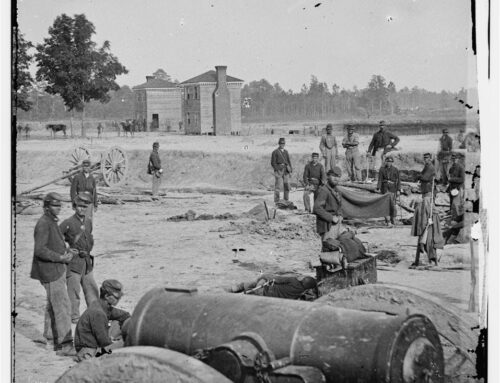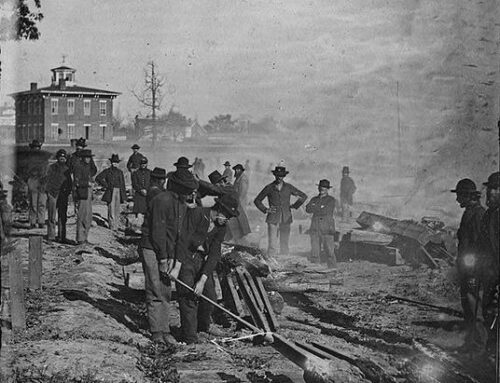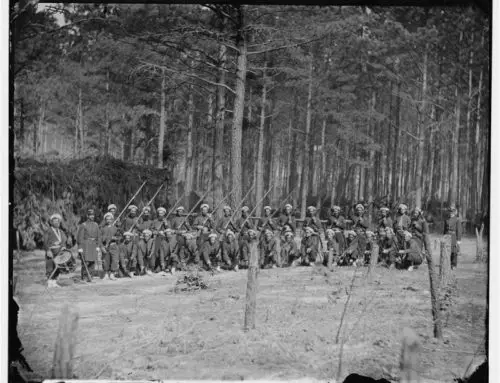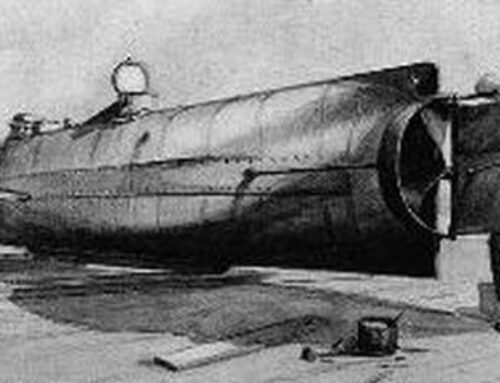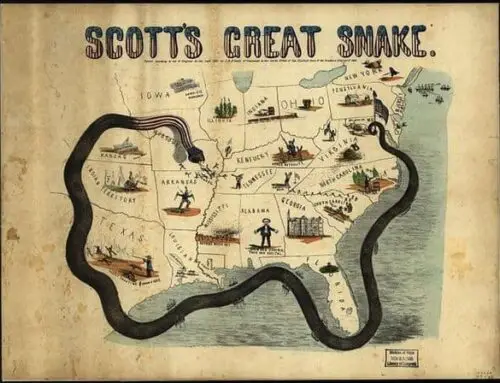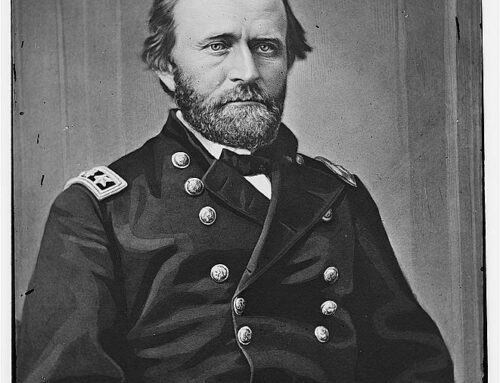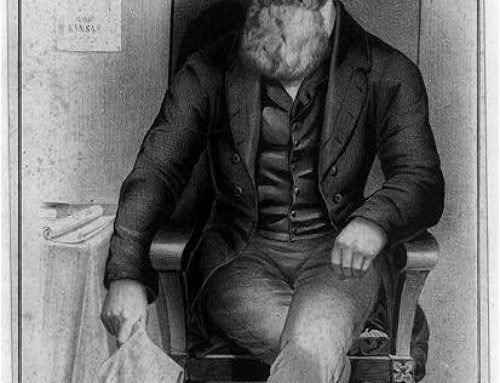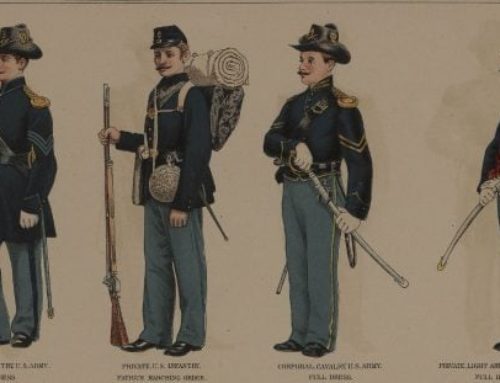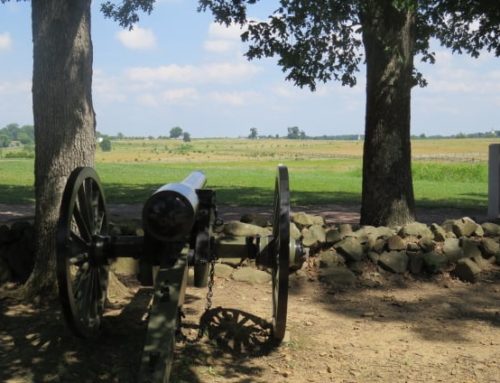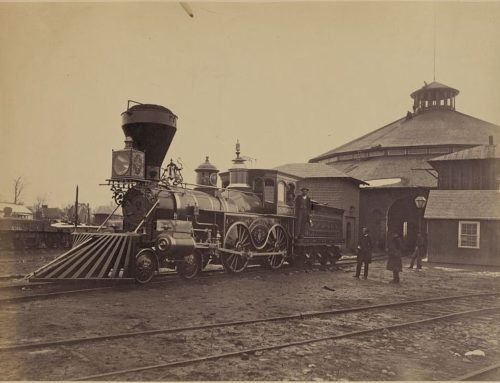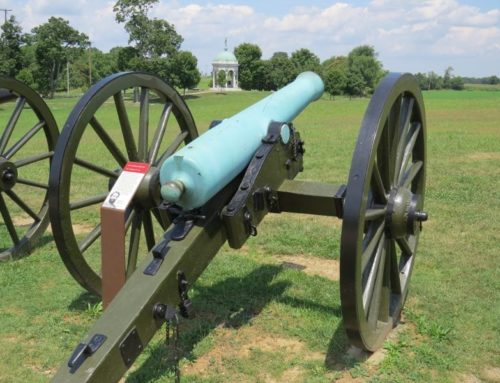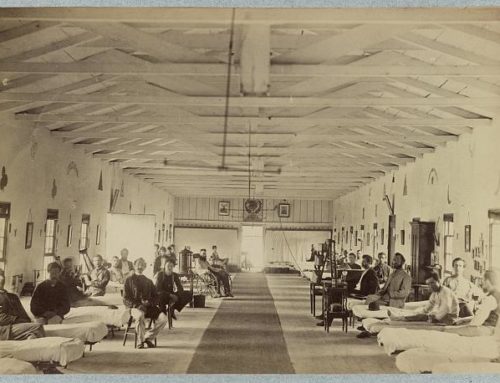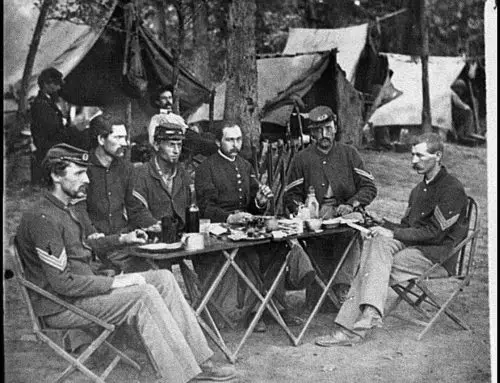The Civil War started to take shape with the election of Abraham Lincoln on November 6, 1860. What caused the Civil War is debatable but the election of Lincoln certainly was a key factor.
This was the final straw in decades of conflict between pro and anti-slavery forces. Lincoln believes in “Free Soil.” In other words, he believes that no more states should be admitted to the Union as slave states.
On December 20, 1860 South Carolina secedes from the Union; Mississippi, Florida, Alabama, Georgia, Louisiana, and Texas quickly follow her.
Lincoln hopes to end the rebellion quickly, although a few Northerners feel that the industrial North will get along just fine without its “backward” agricultural Southern cousins and are ready to say “good riddance” to the South.
The most vocal anti-war group in the north were the Copperheads. One of the most prominent voices of the North was Horace Greeley. When Jefferson Davis is selected as president of the Confederacy in February 1861 it’s obvious that these “insurrections” may be tough to put down, but Northerners remain confident in a quick victory.
An excellent resource on some of the more obscure events of the war is #ad The Untold Civil War: Exploring the Human Side of War which delves into the unknown side of the war.
If you have never seen #ad Ken Burns: The Civil War (Commemorative Edition) documentary it is by far one of the best Civil War documentaries ever made. It goes into great detail about the major events of the Civil War.
On March 4, 1861 Lincoln takes office and the next month Confederate troops fire on Federal troops guarding Fort Sumter in Charleston Harbor, South Carolina, igniting the Civil War. Surrounded, the Federal troops surrender (April 13, 1861). Within a few days, Virginia, Arkansas, North Carolina and Tennessee also secede. Lincoln blockades the Confederacy so that it cannot get supplies. The South has few factories and has relied on the North and on European manufacturers for weapons and ammunition, so Lincoln hopes the blockade will be sufficient to force the South into submission without the need of bloodshed. Like many of Lincoln’s hopes during the Civil War, this one is quickly dashed.
The South swiftly begins manufacturing its own weapons, using scrap metal and other supplies gathered by loyal Confederates and also relies on supplies smuggled in from Europe and the North. Lincoln also hopes brilliant war tactician Robert E. Lee will agree to be the Union’s chief general, but although Lee feels the South would be better off without slavery, he cannot bring himself to fight against his native Virginia and he becomes the Confederacy’s major general.
Finding a good general will be a headache for Lincoln throughout most of the Civil War. At one point, Lincoln plans war strategy himself, studying books on battle tactics late into the night, because he has little military experience. The elderly, ailing hero of the Mexican War, General Winfield C. Scott provides a strategy know as the Anaconda Plan to squeeze the South into submission, but he can’t take to the field to see his plans put into action; if “Old Fuss and Feathers” (Scott’s nickname) had been able to take the field he might have given Lee a run for his money.
Inexperienced troops lead to a disastrous first battle for the Union. The First Battle of Manassas or Bull Run occurs on July 21, 1861, by the Bull Run River outside of Manassas, Virginia. Believing Union troops will win a decisive victory, several Congressmen drive down from Washington to watch the battle and actually picnic under the trees a little apart from the battlefield. Their picnic is spoiled when Confederate Infantry reinforcements arrive and send the green Union troops into a panic. Soldiers and Congressmen run for their lives.
To discipline the Army of the Potomac’s green troops during the Civil War, Lincoln picks General George B. McClellan. The troops love “little Mac” because he genuinely cares for their welfare and they are soon a disciplined army, but “little Mac” delays beginning an offensive campaign. Lincoln complains that McClellan is too slow. He tolerates McClellan’s delays because he knows how vital troop morale and discipline are and he appoints McClellan General-in-Chief.
Few battles happen during the Civil War in the first year. In February 1862, the Union wins a decisive victory when Ulysses S. Grant and Andrew H. Foote capture Fort Henry and Fort Donelson. Union troops take Nashville by month’s end. Grant wins a promotion for his leadership and in meanwhile the slow McClellan has finally begun the Peninsular Campaign which is aimed at capturing Richmond.
In April, the battle of Shiloh devastates both sides, but the Union gains the upper hand. Shiloh is the first of many horrifically bloody battles that will occur throughout the Civil War. On April 29, Union forces occupy New Orleans; they will hold this important port for the rest of the war. A few days later, McClellan occupies Yorktown, but he delays in attempting to capture Richmond the Confederate capitol, despite Lincoln’s constant urging.
Things go poorly for the Union during several battles that summer. In July, Lincoln appoints Henry W. Halleck as General-in-Chief. It now apparent to Lincoln that his original goal of keeping the Union together is not adequate motivation to win the war; freeing the slaves will weaken the Confederacy and give the Union a nobler goal to fight for. Because of the North’s frustration with the war’s slow progress, Lincoln keeps his decision to issue the Emancipation Proclamation secret, until Lee invades Maryland and Union forces push him back at Antietam (September 17, 1862).
McClellan‘s significant victory at Antietam allows Lincoln to announce the Emancipation Proclamation on a wave of Union victory; however, Antietam is McClellan’s only significant victory.
In November, Lincoln replaces him as commander of the Army of the Potomac with Ambrose E. Burnside, but Burnside is no more effective than McClellan. On January 1, 1863 the Emancipation Proclamation takes effect; unfortunately, this only frees slaves in the rebel states, since the president has no constitutional power to free slaves in the loyal states. Later in the month Lincoln replaces the ineffective Burnside with “Fighting Joe” Hooker. Hooker losses his nerve at the Battle of Chancellorsville (May1-4) and by June, Lincoln takes another step in search of the right general, replacing Hooker with George Gordon Meade.
That July, Union forces under George Gordon Meade win a decisive victory over the Confederates at Gettysburg, Pennsylvania. Lee’s determination that his forces should win leads him to make costly mistakes. In the meanwhile, Grant’s forces have been sieging Vicksburg, a vital port which will allow the Union to regain control of the Mississippi; after six weeks of siege, the Confederates surrender Vicksburg (July 4, 1863).
Control of the Mississippi is vital to a Union victory, for the Confederacy has been smuggling supplies by it. Grant’s strategy has paid off and Scott’s Anaconda plan is beginning to squeeze the Confederacy from two sides. Union forces face bloody battles that September in Tennessee, but the tide is definitely turning in the Union’s favor.
Lincoln has finally found a general who has what it takes. In March 1864, Grant is appointed head of the Armies of the United States. Grant and his friend General William T. Sherman are not afraid to use what might seem ruthless tactics to win the Civil War; they reason that the sooner the conflict is over, the fewer lives will be lost in the long run. That May, Grant begins the campaign against Richmond the Confederate capitol, while Sherman begins his march to Atlanta, burning Confederate cities and supplies as he goes. By September, Sherman’s forces take Atlanta and burn the city after evacuating its residents. Sherman’s March to the Sea begins and by December he occupies Savannah, Georgia.
The Confederacy is dying. Hunger is plaguing civilians and soldiers alike and getting ammunition is becoming more difficult. Sherman’s march to the sea has cut the South in two, just as he and Grant had planned. Confederate representatives meet with Lincoln, but they refuse his terms of surrender. On April 3, 1865 Union forces occupy Richmond; five days later, Lee surrenders to Grant at Appomattox Court House, Virginia. Though some Confederate forces will continue to fight until early May, the Civil War is over.
Sadly, the Union’s guiding force will not live to see the aftermath of victory. Lincoln was killed while attending a play with his wife Mary Todd Lincoln at Ford’s Theater. The Lincoln Assassination occurred on April 14, the day the Union flag is once more flown over Fort Sumter, Lincoln is assassinated by John Wilkes Booth, a fanatical Southerner.
On the day Lincoln died Edwin Stanton uttered the famous words “And now he belongs to the Ages”. With the death of Lincoln the South lost it’s best friend. Lincoln wanted to help the South with Reconstruction and warmly welcome them back into the country. Lincoln’s successors and northern Carpetbaggers would not be so forgiving.
It would take many long years before the south recovered from the devastation of the Civil War.

